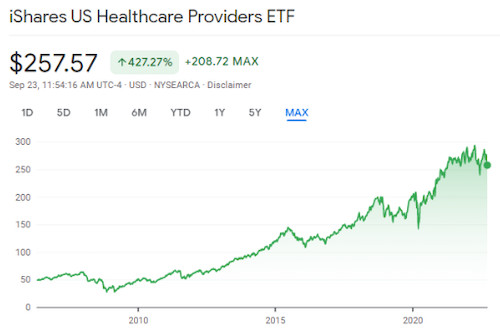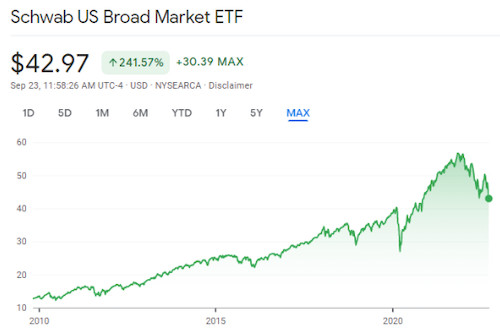Best Non-Stock Investments to Grow Your Portfolio

Joy Wallet is advertiser-supported: we may earn compensation from the products and offers mentioned in this article. However, any expressed opinions are our own and aren't influenced by compensation. To read our full disclosure, click here.
The major alternative investment types
- Over 100 Stock Picks with 100%+ Returns
- Averaged Stock Pick Return over 593% (vs. 165% for the S&P)
- 2 New Stock Picks Every Month
- Investment Community With 700,000+ Loyal Members
- 30-Day Membership-Fee-Back Guarantee
- Joy Wallet Reader Deal: The Motley Fool is offering 50% off its top stock-picking service for new members (Limited Time)
Liquid alternatives
Limited liquidity products
Illiquid private investments
Choosing the best non-stock investments
The importance of liquidity
Your risk tolerance


- Over 100 Stock Picks with 100%+ Returns
- Averaged Stock Pick Return over 593% (vs. 165% for the S&P)
- 2 New Stock Picks Every Month
- Investment Community With 700,000+ Loyal Members
- 30-Day Membership-Fee-Back Guarantee
- Joy Wallet Reader Deal: The Motley Fool is offering 50% off its top stock-picking service for new members (Limited Time)
The power of your dollar
Companies that help with non-stock investments
Charles Schwab
Republic
Robinhood
DiversyFund
Cadre Real Estate
- Over 100 Stock Picks with 100%+ Returns
- Averaged Stock Pick Return over 593% (vs. 165% for the S&P)
- 2 New Stock Picks Every Month
- Investment Community With 700,000+ Loyal Members
- 30-Day Membership-Fee-Back Guarantee
- Joy Wallet Reader Deal: The Motley Fool is offering 50% off its top stock-picking service for new members (Limited Time)
The costs of investing in stock market alternatives
Type | Summary | Popularity | Price Range and Fees |
Mutual Funds | Highly liquid, low risk, fewer decisions | 1st place at 68%, rising popularity at 7% planned usage | 0.50% average expense ratios |
ETFs | Highly liquid, good for beginners, lower costs | 3rd place at 54% usage, rising popularity at 12% planned usage | Can be as low as $50/share, but beware of operating expenses and commission costs |
REITs | Medium liquidity, potential for increasing dividends, lower risk than direct ownership | 2nd place at 61% usage, 1% expected planned usage | Public can be $1,000 to $2,500 but harder to find; private can be $25,000+ |
Real estate | Illiquid, multiple possibilities for yielding dividends, can be used as a tax shield | 4th place at 47% usage, rising popularity at 4% planned usage | Depends on the area and the property, but average 20-25% down payment + closing fees |
Private equity | Illiquid, drive change and growth, lower competition | 7th place at 41% usage, rising popularity at 10% planned usage | Restricted as of 2020 to those with $1 million in assets and/or an income of $200,000/year |
Pros and cons
- Passive income. Most non-stock investment options offer possibilities for yielding passive income. For instance, REITs yield this in the form of dividends. You can make your deal, sit back and relax while earning income.
- Dampened volatility. Stocks tend to plummet for various factors, including international conflict and extreme weather. Choosing alternatives to stocks allows you to take advantage of more stable investments.
- Potential for higher returns. If you have the money to invest in private equity or commercial real estate, you may get higher returns than a typical stock market portfolio. That’s because these also come with higher risks. At the same time, they’ll help diversify your portfolio, which means your money is less likely to vanish with a downturn
- Can be expensive. Beyond ETFs, you’ll need to be able to throw thousands of dollars at individual investments. That adds up, especially if you weren’t rich to begin with.
- May require accreditation. Some forms of alternative investments require you to become an accredited investor. These tend to be unregistered and high-risk investments, but still. You’ll need to prove you have a decent net worth and good credit.
- More complex, less liquid than stocks. There are so many different kinds of alternatives. You’ll need to do a lot of research and be prepared to have no access to your investment funds for a longer period.
- Over 100 Stock Picks with 100%+ Returns
- Averaged Stock Pick Return over 593% (vs. 165% for the S&P)
- 2 New Stock Picks Every Month
- Investment Community With 700,000+ Loyal Members
- 30-Day Membership-Fee-Back Guarantee
- Joy Wallet Reader Deal: The Motley Fool is offering 50% off its top stock-picking service for new members (Limited Time)
The bottom line
Joy Wallet is an independent publisher and comparison service, not an investment advisor, financial advisor, loan broker, insurance producer, or insurance broker. Its articles, interactive tools and other content are provided to you for free, as self-help tools and for informational purposes only. They are not intended to provide investment advice. Joy Wallet does not and cannot guarantee the accuracy or applicability of any information in regard to your individual circumstances. We encourage you to seek personalized advice from qualified professionals regarding specific investment issues. Featured estimates are based on past market performance, and past performance is not a guarantee of future performance.
Our site doesn’t feature every company or financial product available on the market. We are compensated by our partners, which may influence which products we review and write about (and where those products appear on our site), but it in no way affects our recommendations or advice. Our editorials are grounded on independent research. Our partners cannot pay us to guarantee favorable reviews of their products or services.
We value your privacy. We work with trusted partners to provide relevant advertising based on information about your use of Joy Wallet’s and third-party websites and applications. This includes, but is not limited to, sharing information about your web browsing activities with Meta (Facebook) and Google. All of the web browsing information that is shared is anonymized. To learn more, click on our Privacy Policy link.
Images appearing across JoyWallet are courtesy of shutterstock.com.
A veteran wordsmith and research nerd, Brittany Wren spent a decade working in higher education where she helped people overcome challenges to chart a path forward. These days, she writes about personal finance, careers, parenting and education. Her content has been published by a wide variety of brands including T-Mobile, Intuit, LifeLock, Reliant Fund Administration and CURO Financial Technologies Corp.









